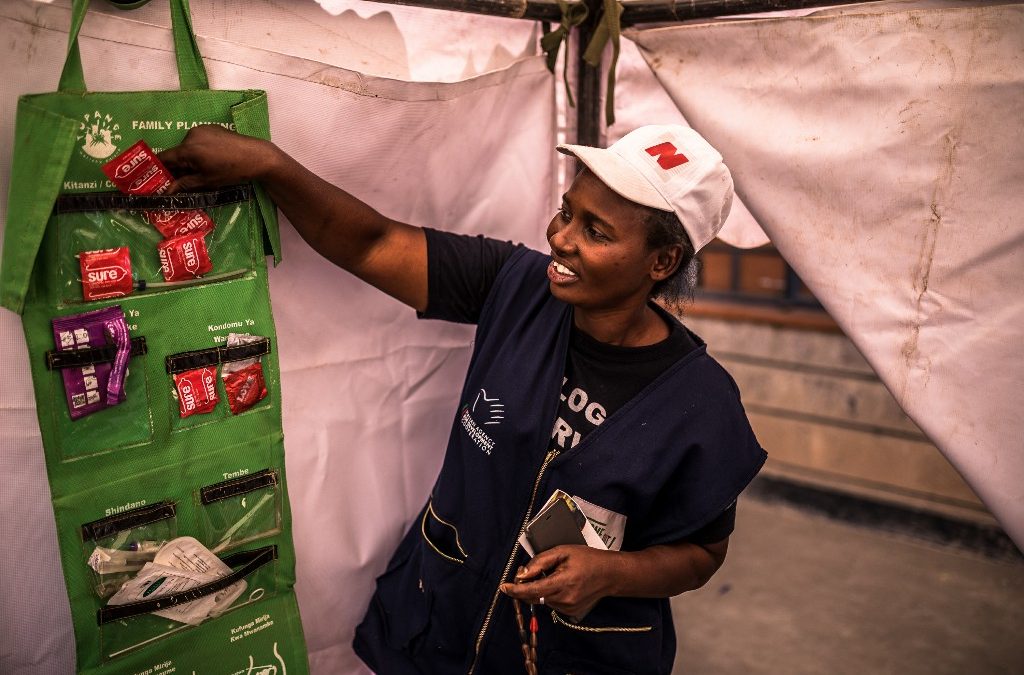While dealing with COVID-19, let us not forget sexual and reproductive healthcare

How the COVID-19 pandemic will affect the different aspects of our lives is continuously being documented and discussed.
The economic effects of COVID-19 and the response of the Kenyan government has been well documented.
The effect of COVID-19 on sexual and reproductive healthcare
However, the effect of COVID-19 on healthcare, especially sexual and reproductive healthcare, has not been discussed in the same depth and breadth.
During times of health crises such as the COVID-19 pandemic, it is expected that our healthcare system will be pushed to the limit. It is also expected that resources will be redirected to deal with the crisis at hand, leading to deprioritisation of other areas of healthcare.
One critical health programme likely to be negatively affected by the COVID-19 pandemic response is the Reproductive, Maternal, New-born, Child and Adolescent Health (RMNCAH) programme, both at national and county levels.
As Kenya battles COVID-19, Kenyan women (and their partners) still need to have a satisfying and safe sex life, choose if and when they want to have children.
The World Health Organisation, in a factsheet titled “Disaster Risk Management for Health – Sexual and reproductive health” identifies that in times of crisis, disruption in reproductive health services can lead to a range of adverse outcomes. The factsheet identifies negative outcomes including an increase in sexually transmitted infections, possible spread of HIV, increased unintended pregnancies and unsafe abortions as well as maternal and neonatal deaths
The United Nations Population Fund (UNFPA) in its publication “Reproductive Health for Communities in Crisis” describes how in times of crisis, reproductive health needs are likely to be overlooked.
Simply put, the UNFPA says that in times of crisis, such as the current COVID-19 pandemic, the national and county governments need to keep providing reproductive healthcare services. Providing reproductive healthcare services through the crisis means at the very minimum, the public health sector is able to address complications of pregnancy and delivery, the transmission of sexually transmitted infections including HIV and AIDS, adolescent sexual and reproductive health concerns, and access to condoms and other contraceptives.
Even before the onset of the ongoing COVID-19 pandemic, Kenya was struggling with sexual and reproductive healthcare issues. Kenya’s rate of preventable maternal deaths is still unacceptably high. 362 per 100,000 live births according to the Kenyan Demographic and Health Survey, 2014. Too many women do not have access to modern contraceptives, too many adolescents and young people are getting pregnant and getting infected with HIV.
Funding requirements for sexual and reproductive healthcare
Kenya was also struggling to meet funding requirements for sexual and reproductive healthcare before the COVID-19 pandemic hit. In a budget analysis our organisation conducted in nine counties with funding commitments (family planning costed implementation plans) in the 2018/2019 fiscal year, all nine counties invested less in their family planning programmes for the 2018/2019 fiscal year than they needed to.
In light of the COVID-19 pandemic, this dire situation could get worse if we do not pay attention to reproductive healthcare.
The silver lining is that we have commitment from the highest political office on reproductive healthcare. At the Nairobi Summit on the 25th anniversary of the International Conference on Population and Development (ICPD +25) held in November 2019, President Uhuru Kenyatta committed that Kenya will end unmet need for family planning information and services; preventable maternal deaths and maternal injuries; as well as sexual and gender-based violence and harmful practices among other reproductive health challenges.
The public healthcare system serves majority of Kenyans
It is vital that the national government and county governments ensure that we continue to work towards these commitments, especially because the majority of Kenyan women access reproductive healthcare services from public health facilities.
A good illustration of the importance of the public health system in providing sexual and reproductive healthcare is access to contraceptives. According to the Kenya Demographic and Health Survey 2014, the public sector is the major source of contraceptive methods in Kenya, providing contraception to 6 out of 10 (60 per cent) of current users. 24 per cent of users obtain their methods from government dispensaries, 20 per cent from government hospitals, and 16 per cent from government health centres.
As the national and county governments reorganise the public health system to respond to COVID-19, decision-makers need to keep in mind that millions of Kenyans depend on the public sector for reproductive healthcare. It is therefore imperative that the public health system remains adequately resourced and ready to meet the reproductive healthcare needs of Kenyan women and their partners.





